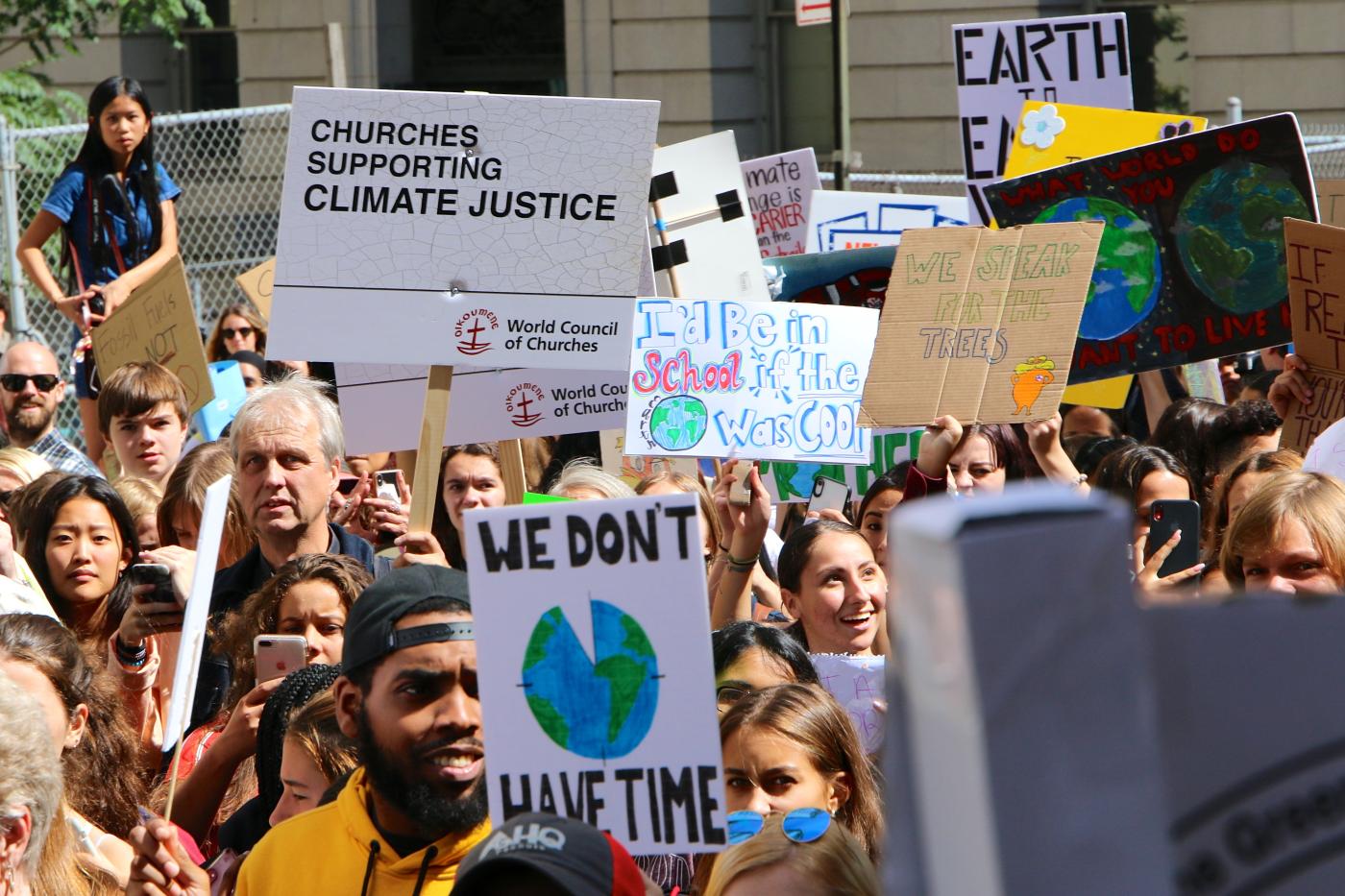For many years most people thought of climate change as an ecological issue. It was something for environmentalists to deal with. The core issues for the future were economic growth, trade and industrial development. That should lift people out of poverty and create a welfare society.
Still it looks like people in power stay with that narrative! Competition and market models shall solve all the problems and the wealth would trickle down to raise poor people out of poverty. This model is proven to be false and it doesn’t bring down the CO2 emissions. On the contrary it increases the CO2 emissions since the model rewards the short term solutions and slashes the long term solutions. To regard natural resources as only an asset to be extracted to be commodified and something to bring to the market is not sustainable.
This model doesn’t spread wealth. Even if the percentage of people living in poverty has gone down the accumulation of wealth to the top percentage of the richest has reach immoral levels.
This is very well illustrated in the emissions of greenhouse gases. The richest 10% of the world are responsible to 49% of the emissions and the poorest 50% are responsible for about 10%.
The climate science is clear about the threats already at a 2 degree Celsius warming. Water scarcity and food shortages, droughts and flooding will have a huge impact on everyday life for lots of people all over the world and the economic damage will be immense. It will also force people to migrate and trigger conflicts.
Even if this is known to many different leaders of the world, the short term wins are still more important to them. And that can work in a very short perspective but we are getting closer and closer to the point where this narrative will break down. Injustice in the proportion we see today - and clearly visualized by the emissions of CO2 - are not sustainable. Today we see no real movement to take the lead in the great need for a fundamental change. The only leadership we see is a young generation that has no tools for implementing anything. They are cheered by media and world leaders but business as usual prevails. The question is for how long? Who and what movements will step up and take responsibility for a development that is sustainable and just? And remember these two have to go together. Sustainability and justice must stick together.
When the Chilean president Piñera redraws hosting COP 25 some weeks before it should begin, it is because of protesters in the street demanding justice or protesting against a life that is totally commodified and trusting a market solution to everything. But it seems to be a protest without leadership or common narrative of where to go.
A narrative that could serve as a vehicle to meet the climate emergency we are facing must have a just transition as a core value. The transition to a low carbon society is not done via political leadership who underestimates the effects of climate change and keeps a very conservative view at what is possible to do. There is no business as usual on a 2 or 3 degree warmer Earth but that is not so often recognized by those in charge. And there is no possibility to achieve a transition to a low carbon society if it is not done with a justice aspect. The yellow vests in France and the protesters in Chile make it clear; no justice, no transition. And that will be a losing game for everyone.
Climate justice means that those most affected need to be lifted up and secured a bearable life. Those who contribute most to climate change must immediately transform their infrastructure in every way, including economic infrastructures, and with financial means support the adaptation to a low carbon society. The generation of today must prepare for the coming generations to have a fair opportunity to have a decent life and a good life on planet Earth. All this comes only with a huge transformation that involves every part of human expression on the planet as the species with most impact on the planetary system.
This is what has made human societies successful during history; our ability to adapt and to cooperate. We can do it again. We have the knowledge we have the instruments. The things that are most threatening are that we have no common narrative that builds on equality, justice and love. This is not beautiful words. They are powers that are sleeping or hiding today and must step up and take lead to spark the transitions. You find them among environmentalist, scientists, artists, religious leaders and lay people, social justice activists, youth and many different movements that are voices from the margins or crying voices from the deserts.

